Jefferson Weeps
July 1, 2025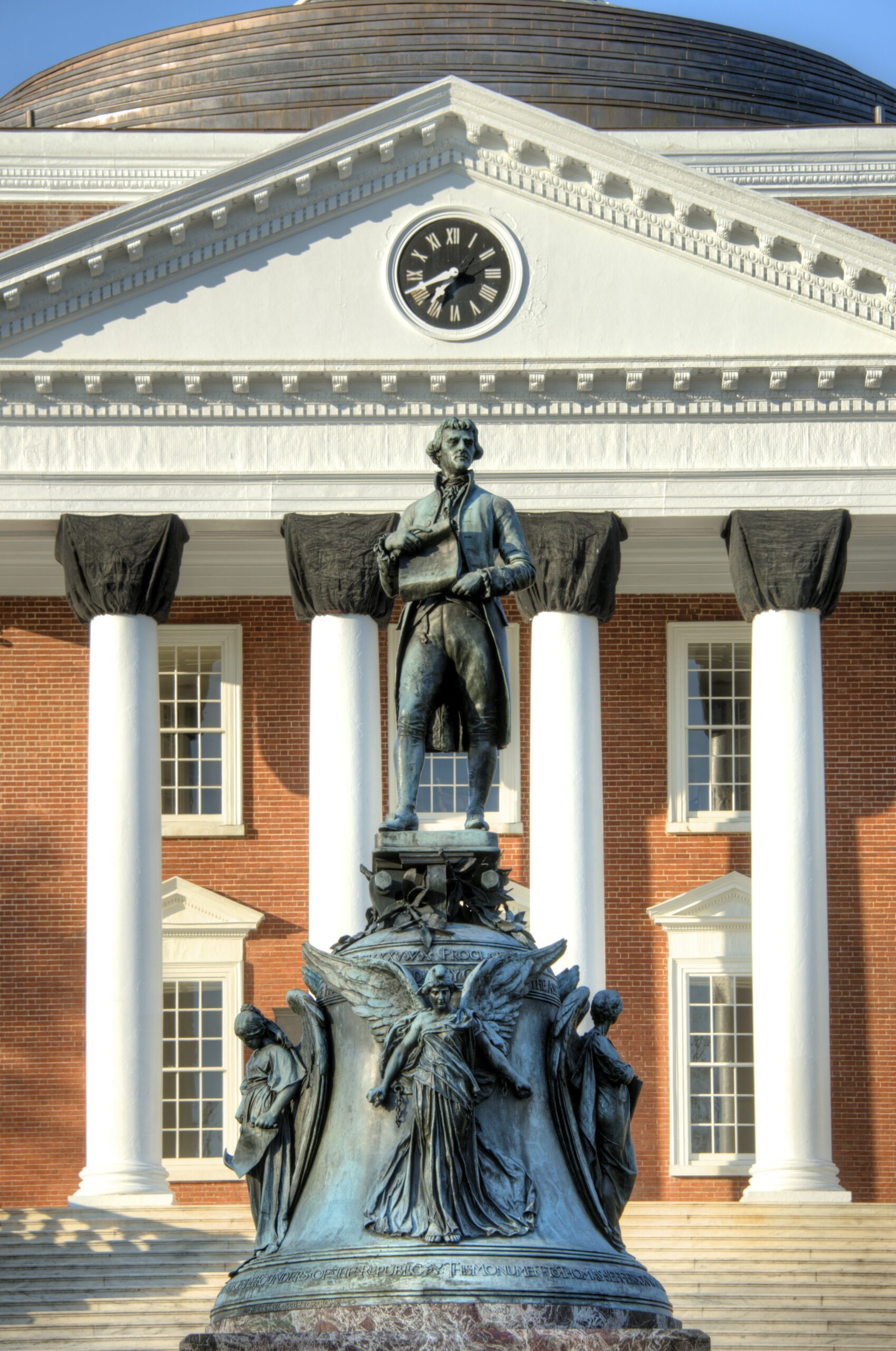
(photo credit for Jefferson Statue at UVA)
Thomas Jefferson is surely weeping at the tawdry spectacle of tyrannical vengeance his beloved university has become. Aided and abetted by a political Board of Trustees for the university that has failed in its fundamental duty of loyalty to the institution, the Trump Administration has gleefully claimed yet another presidential victim in its senseless, destructive war on higher education. Decapitating university leadership has become a blood sport for the authoritarian regime that has proudly forced out presidents and presidential aspirants at Harvard, Penn, Columbia, Florida and, now, the University of Virginia.
In an interview I gave to Liz Willen, editor of The Hechinger Report, I said that, “The forced resignation of UVA President James Ryan lays bare once more the intent of the Trump Administration to silence the leadership of American higher education and to debilitate its leading institutions so that the regime can continue its campaign to deconstruct our Democracy without opposition.” The title of Willen’s column aptly states the new realities for higher education: “Why higher education should be mourning the loss of its independence on July 4th.”
But the threat is much larger and deeper than the debilitation of elite universities. By crippling one great university after another through grossly improper interference with internal university policies including the tenure of presidents, Trump is trying to intimidate the entire higher education sector into abject compliance with his authoritarian directives, particularly those that demand abandoning principles and programs that promote diversity, equity and inclusion.
This is not a mere academic exercise to achieve some kind of rebalancing of the curriculum. Trump’s real war is on this country’s 70 years of progress on civil rights and equal opportunity for Black Americans in particular. Since the Supreme Court ended the shame of “separate but equal” laws and policies in 1954 (Brown v. Board of Education), leading to the subsequent enactment of the Civil Rights Act of 1964 and other court rulings and legislative actions intended to level the playing field for persons suffering historic discrimination, right-wing politicians and interest groups have been working in overdrive to stop this nation’s progress toward true racial justice and equity for all persons.
In the most cynical and abusive twist to this sad story, the right has now co-opted much of civil rights law and policy to defeat its very purpose in promoting equal opportunity for those who suffered historic discrimination, notably Black and Brown Americans, women, ethnic minorities and LGBTQ persons. The Trump Administration’s Department of Justice and Civil Rights Office at the U.S. Department of Education have made the usurpation of civil rights laws into an art form, most recently accusing Harvard University of “violent violation” of Title VI of the Civil Rights Act for failing to protect Jewish students from discrimination on that campus (Harvard vigorously denies the charge) — and threatening Harvard with a total economic obliteration by ending all federal funding for the nation’s oldest university.
To date, while using the scrim of antisemitism as a political cudgel to wage its war on universities, the Trump Administration has said absolutely nothing about discrimination and abuse suffered by African American and Hispanic students — and instead, the same administration that lectures Harvard about “viewpoint diversity” has ordered a complete end to any and all programs that promote DEI — diversity, equity and inclusion — wrongly deeming such programs to be illegal, which they are not.
We leaders of higher education must redouble our resolve to confront the racism, ethnic hatred, sexism and homophobia that drive the political attack on DEI. Such confrontation may come at a cost, yes, but the larger cost is the loss of the soul of the university. Let’s be clear: taking diversity, equity and inclusion values into account is NOT illegal, as the Trump administration claims, and in fact, those principles reflect a moral viewpoint on justice that undergirds the work of many, if not most, colleges and universities. Catholic colleges and universities, in particular, have a large commitment to the religious tenets of social justice that start with recognizing the dignity and worth of every human being, a teaching that demands that we stand for racial justice and an end to white supremacy and ethnic hatred.
It’s our responsibility to shape the future citizen leaders of this nation, the most diverse polity in human history, and to teach our students how to respect and support each other and serve communities regardless of personal characteristics. No federal official has the right to force out an institutional leader who stands up for the values, policies and practices of the university. The willingness of the UVA Board to cooperate with the Trump Administration’s pressure campaign — facilitated by the obvious bias of several Board members — is also a complete abandonment of the Board’s responsibility to act in defense of the university against improper external interference.
249 years ago, Thomas Jefferson was the lead writer for the manifesto of freedom that became known as the Declaration of Independence, a moment in history that we celebrate this week and every year on July 4. In this moment of grave peril not only for higher education but for our nation’s commitment to true democratic principles, let’s remember the point and purpose of the Declaration of Independence and these opening paragraphs:
In Congress, July 4, 1776
The unanimous Declaration of the thirteen united States of America, When in the Course of human events, it becomes necessary for one people to dissolve the political bands which have connected them with another, and to assume among the powers of the earth, the separate and equal station to which the Laws of Nature and of Nature’s God entitle them, a decent respect to the opinions of mankind requires that they should declare the causes which impel them to the separation.
We hold these truths to be self-evident, that all men are created equal, that they are endowed by their Creator with certain unalienable Rights, that among these are Life, Liberty and the pursuit of Happiness.–That to secure these rights, Governments are instituted among Men, deriving their just powers from the consent of the governed, –That whenever any Form of Government becomes destructive of these ends, it is the Right of the People to alter or to abolish it, and to institute new Government, laying its foundation on such principles and organizing its powers in such form, as to them shall seem most likely to effect their Safety and Happiness. Prudence, indeed, will dictate that Governments long established should not be changed for light and transient causes; and accordingly all experience hath shewn, that mankind are more disposed to suffer, while evils are sufferable, than to right themselves by abolishing the forms to which they are accustomed. But when a long train of abuses and usurpations, pursuing invariably the same Object evinces a design to reduce them under absolute Despotism, it is their right, it is their duty, to throw off such Government, and to provide new Guards for their future security.
To read the entire Declaration of Independence visit https://www.archives.gov/founding-docs/declaration-transcript
Continue reading →Read comments (0) Add CommentRemembering Judge Patricia Broderick ’71
June 19, 2025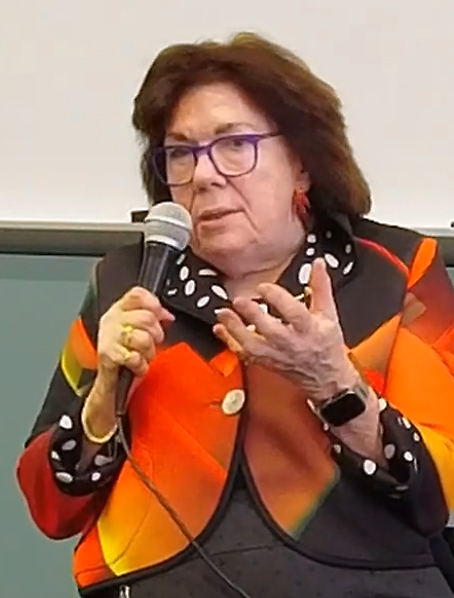
(Judge Patricia Broderick ’71 discussing her book Reinventing the Wheel at Trinity on October 24, 2024)
See: Washington Post Obituary for Judge Broderick
Note about Memorial Service: According to this lovely remembrance of Judge Broderick on Legacy.com , “At Pat’s direction, there will be no memorial service. A celebration of life via zoom will be held at a later date. To participate, please send your name, how you knew Pat, and your email address to lisajoyz@hotmail.com”
Before she was a highly respected judge at D.C. Superior Court, before her well-earned reputation as a brilliant lawyer and prosecutor, before she was a champion for disability rights, Patricia Broderick (Patti to her friends) was one of us — a Trinity student — a smart, adventurous, curious and daring young woman who yearned to make a difference, to see and experience the world, and to learn as much as she could about how she could make the world a better place. She came to Trinity from her home in New Jersey in 1967, joining the Class of 1971 as a Sociology major. She thought she would be a social worker, tapping into her zeal to experience the world by spdending the summer after sophomore year on a service trip to Ecuador. Then, in the summer after her junior year, she and her friends took a fateful road trip to see America, traveling far and wide before ending in a crash on the side of I-70 near Washington, Pennsylvania.
Pat Broderick died last week at age 75. Even though that crash right before her senior year left her paralyzed, she learned to navigate the highways and byways of life with tremendous courage, determination and a real zest for demonstrating time and again that she could do anything that other people could do.
I remember first seeing her on campus when I was a Trinity freshwoman in 1971 — Patti returned to Trinity to finish her degree in Spring ’71, working hard to catch up and complete all degree requirements so she could graduate that May. But unlike other students, she had to navigate the long hills and bumpy roads and sidewalks of Trinity in a wheelchair — this was an age long before the Americans with Disabilities Act, and getting around our campus was not easy. Every time I saw her wheeling up Cuvilly driveway or around our buildings, I marveled at her strength and determination to show all of us how to live a great life despite setbacks.
After graduation, Pat earned a master’s degree in Rehabilitation Counseling at George Washington University, and then embarked on a career as a probation officer. That experience ignited her desire to study law, and she soon earned her J.D. at Catholic University and embarked on her brilliant legal career as a U.S. Attorney. In 1998 she became an associate judge at D.C. Superior Court where she earned a reputation as being tough but fair, presiding over felony cases in the Criminal Division and then later moving to Family Court.
Judge Broderick was at Trinity just last October to discuss her book Reinventing the Wheel. What was most notable about her presentation —- and a tone that suffuses the book — is her utter lack of self-pity or regret. She proudly discussed her many trips — 66 countries! — and her love for skiing. She recounted the ways in which encounters with barriers and discrimination incentivized her to rise above them, to find ways to demonstrate her competence and capacity for excellence in the face of doubts and outright prejudice. She never wanted to be an icon for disability rights, but she lent her story and influence to making changes that promoted accessibility whether facing physical barriers or limitations on professional potential.
Let us remember Judge Patricia Broderick with thanks and appreciation for her marvelous examples of excellence, professionalism, compassion and courage. Her friends, classmates and associates will surely miss her very much, but we will smile with joy as we remember her example of meeting life’s challenges with an unending reservoir of positive energy. She leaves this world a far better place for her engagement with it.

At the National Press Club
Continue reading →Read comments (12) Add CommentVOICES OF TRINITY: CONGRATS, CLASS OF 2025!
May 11, 2025
Ashley Monique Williams, B.A. in Journalism and Media Studies (SPS)
My collegiate journey began in 2003, fresh out of Joel Elias Spingarn Senior High School in Northeast Washington, DC. I enrolled at the University of Maryland Eastern Shore with big dreams and a bright future ahead. I thrived socially and performed well academically, but the reality of life soon began to weigh heavily. By age 25, I had lost both of my parents, and though I was raised by my loving grandparents, Hilda and Leonard Johnson, Jr., the emotional toll of those losses led me to pause my college journey and enter the workforce.
I began working with special needs children and young adults, and it was there I discovered my passion. That work led me to become a paraprofessional in our local school district—a path I walked with pride and purpose. But when the pandemic changed everything, I found myself questioning the future of my career in education. I often encouraged my students to finish school and pursue college, all while carrying the unspoken truth that I had not yet finished my own degree.
Everything changed when I read about the DC Futures scholarship, designed for Washington, DC residents like me—individuals who had started but not yet completed college. That article reignited a fire in me. In 2021, I enrolled at Trinity Washington University with a promise in my heart—one I had made on the deathbed of my grandmother: I will finish.
Returning to college as a professional learner was both rewarding and challenging. During my junior year, my grandfather—my best friend—was diagnosed with stage 4 prostate cancer. I considered stepping away to care for him, but he made me promise to continue. With his blessing and encouragement, I pushed forward with online courses, determined to keep that promise.
There were moments when I wanted to give up. But I was not alone. Ms. Vernae Taylor, my coach through DC Futures, was a steady source of encouragement and guidance. At Trinity, I found not just a school, but a village. Professors like Linita Shannon, Sekou Sankofa, and Chaz Muth challenged me, supported me, and helped me discover my voice. Classmates like Kia Ross uplifted me, spoke my name in rooms I hadn’t entered yet, and reminded me of my worth.
From the moment, I stepped onto Trinity’s campus, I felt at peace. I knew I had made the right decision. Trinity became a second home and a safe space to grow, lead, and heal.
Today, I walk across the stage as a First-Generation college graduate. Though my parents and grandparents are no longer here physically, I know they are watching from above. Their lessons, sacrifices, and unconditional love are woven into every part of this accomplishment. I carry them with me.
This degree is not just mine—it belongs to the community that raised me, the students I’ve served, and the village that surrounded me on 125 Michigan Avenue. I am proud. I am grateful. And above all, I am ready, graduate school her I come!
Mihret Mondimagegn, B.A. Business Administration (CAS)

I’m excited to announce that I will be graduating this week! My experience at Trinity Washington University has been about growth, resilience, and transformation. As an immigrant from Ethiopia, it has not always been easy to adapt to a new culture while attaining higher education, but I have found Trinity to be a supportive, encouraging, and motivating place.
I am majoring in Business Administration, with a concentration in Finance and Accounting and minor in Data Analytics, so I am leaving with a well-constructed academic foundation to begin working, confidently, as I join the professional world. I believe Trinity has shaped my education positively, encouraged resilience and self-belief.
I especially want to express my gratitude to my sister and my family, for their unconditional love and support as they carried me through every stage of my journey. They gave me so much reassurance and were my backbone, even when the going got tough, I had clarity. After graduation, I intend to begin my corporate finance career while pursuing my long-term goal of a master’s degree in business analytics.
I am very proud to be a member of the Trinity community, and I am also thankful for every experience and friendship/relationship that made a difference along my journey.
Kathi McMillan, A.A. Health Services (SPS)
 My name is Kathi McMillan, I’m a fifth-generation Washingtonian from Southeast DC I was born to parents who were blind (Mildred and John), from them I learned morals, values, self-respect, respect for others, and advocacy, which came with challenges where I had to grow up fast. I was also born with an identical twin sister (Karen), which came with its own set of challenges. I am the youngest by four minutes on a technicality (I was coming head first, she was coming feet first and the cord was wrapped around my neck and her ankles, they had to push us up and turn us around to get the cord from around my neck and allow her to come first in the process dislocated my mother’s hip). That’s the technicality!! My education started at the age of three with Head Start Program until age seven, I then navigated the Public School System until graduating from H. D. Woodson Sr High School, and in the mist of this time I lost my father, grandfather, grandmother, gave birth to my first child, and the lost of my mother, which I didn’t give up my dream of achieving a college degree. Since then, I gave birth to my daughter, got married, had three more children and a miscarriage, and a divorce due to domestic violence, through it all, my hunger for higher education didn’t disappear. Within the last thirteen years, I have been homeless, I lost my identical twin to cancer, I received a Certificate in Community Health Worker, and an Associate of Arts degree in Health Services at Trinity.
My name is Kathi McMillan, I’m a fifth-generation Washingtonian from Southeast DC I was born to parents who were blind (Mildred and John), from them I learned morals, values, self-respect, respect for others, and advocacy, which came with challenges where I had to grow up fast. I was also born with an identical twin sister (Karen), which came with its own set of challenges. I am the youngest by four minutes on a technicality (I was coming head first, she was coming feet first and the cord was wrapped around my neck and her ankles, they had to push us up and turn us around to get the cord from around my neck and allow her to come first in the process dislocated my mother’s hip). That’s the technicality!! My education started at the age of three with Head Start Program until age seven, I then navigated the Public School System until graduating from H. D. Woodson Sr High School, and in the mist of this time I lost my father, grandfather, grandmother, gave birth to my first child, and the lost of my mother, which I didn’t give up my dream of achieving a college degree. Since then, I gave birth to my daughter, got married, had three more children and a miscarriage, and a divorce due to domestic violence, through it all, my hunger for higher education didn’t disappear. Within the last thirteen years, I have been homeless, I lost my identical twin to cancer, I received a Certificate in Community Health Worker, and an Associate of Arts degree in Health Services at Trinity.
During my tenure at Trinity, I used the experiences, perseverance, determination, resilience, and tenacity that I learned through my life for fuel to navigate, form relationships, present, be present, receive lessons from professors, and meet assignment deadlines. At Trinity, I learned that community and encouragement are everything that Trinity provides. As I reflect on my accomplishments, I feel an overwhelming sense of Gratitude with tears of joy because of all of the challenges, losses, ups and downs in life, and the significance of my academic achievement shows me that I can accomplish whatever I set out to do for myself at the age of sixty!! I am the first of my mother’s children to receive a college degree this means the world to me, and because of all my professor’s, my advisor, and all the staff and faculty at Trinity, and “I can’t forget all of my classmates” for encouraging and motivating me because this wouldn’t been a reality for me without it. Thank you so much for providing an atmosphere where people like me can achieve great things!! In the fall, I will be pursuing my bachelor’s degree in Health Services with a concentration in Business Administration at Trinity. Thank You!!

Tyeisha Bagwell, B.A. Early Childhood Education (EDU)
My name is Tyeisha Bagwell. I started my college journey in August 2008 at Clark Atlanta University. Although it was a great institution, I left my junior year because it ultimately wasn’t the path that was meant for me. In October 2020, I moved to DC from my hometown of Philadelphia to find better opportunities. It is here in DC that I became a certified Certifying Nursing Assistant (CNA) and birthing doula. I have a passion for understanding and working with the early childhood field. Trinity University found me with a random publicity email and here we are now graduating with my B.A. in Early Childhood Community Education!
During my matriculation here at Trinity, I met some amazing professors that helped me so much in furthering my career and not just by teaching me but by also using their own resources. It is because of the amazing staff that I knew that coming back to pursue the graduate certificate in Education Policy here at Trinity was the only answer! I am so proud of myself, because I never gave up continuing my education and now, I am getting to further it even more. My ultimate goal is to obtain my Ph.D. in education with a specialization in early childhood education, and I know Trinity will help me achieve my goal.
Catia McCreary-Rhone, B.A. Criminal Justice (SPS)
 My college journey began in 2009, I started out at another university before attending Trinity in 2011. My family and I went through some severe family hardships which caused me to suffer from an emotional collapse in my education and in my personal life. My grades were affected tremendously, and I was dismissed from the university. For years I suffered from depression, sadness, doubt, and gave up on myself several times. Years went by, and I was hired with the Department of Justice in 2016, after working hard receiving multiple On the spot awards, cash incentives, and outstanding performance ratings, I encouraged myself to try this college thing again.
My college journey began in 2009, I started out at another university before attending Trinity in 2011. My family and I went through some severe family hardships which caused me to suffer from an emotional collapse in my education and in my personal life. My grades were affected tremendously, and I was dismissed from the university. For years I suffered from depression, sadness, doubt, and gave up on myself several times. Years went by, and I was hired with the Department of Justice in 2016, after working hard receiving multiple On the spot awards, cash incentives, and outstanding performance ratings, I encouraged myself to try this college thing again.
I questioned myself over and over again before I finally made the decision and in 2022 I enrolled in a program at work that would finance my full tuition cost at Trinity Washington University, but because I was dismissed from the other university I had to write an appeal letter, Which brought on more doubt because I was afraid of getting denied. I got an email one afternoon and my appeal letter was approved and my college Journey resumed. This time I was older, wiser, and determined to finish what I started.
On May 16th, 2025, at 5pm I will finally receive what I worked so hard for, despite all life’s challenges, everything that tried to discourage me, and everybody who doubted me, Graduating with a BA in Criminal Justice with over a 3.0 grade point average, I made it! In this life’s lesson I learned that no matter what you go through in life, no matter what people may say or think there is always Joy in the morning. We have no control of what God has planned for our lives, even though we try to plan our lives to what we think is best for us, God’s timing is not our timing, and the most important thing is to Trust Him, trust the process and never give up on you. This has been the most transformative and rewarding experience in my life, receiving this degree has increased my self-esteem, my career advancement, and my personal growth while balancing work, family, and education. Students of the SPS program at Trinity are living proof that college can be accomplished while balancing life. This journey required prayer, family support, strong time management skills, dedication, and commitment. I can finally say I am a college Graduate; and I plan to continue my career at (FBI), attend Law school to focus on business corporate law and become the CEO of my own Catering/Event Venue. Congratulations to the Class of 2025, we did it!
Lianne Thompson-Totty, M.S.A. (BGS)
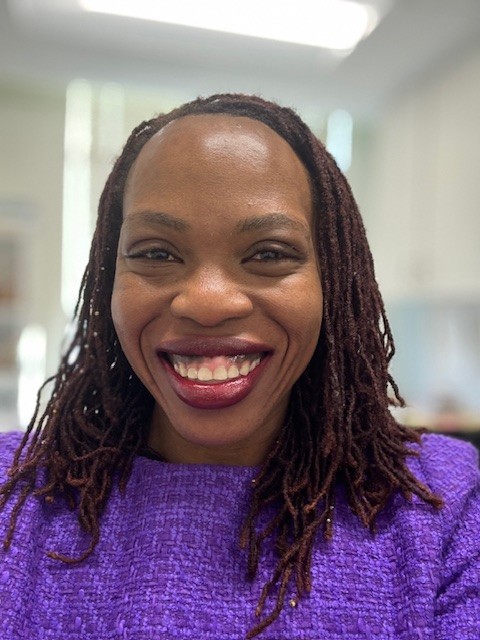 Graduating with my Master of Science in Administration this week feels incredibly empowering. This journey hasn’t been easy, balancing work, school, and motherhood required a level of commitment and focus I didn’t always know I had in me. There were moments when life got heavy, and I had to pause and take a break to handle personal challenges. But I came back. I picked up where I left off, stayed the course, and finished what I started. That, in itself, feels like a victory. I wanted to grow, not just for myself, but to show my sons what it looks like to push through setbacks and still rise. I hope they look at this moment and feel inspired to chase their dreams. I’ve been proud to serve as a Director of Operations within a large healthcare system, but I know I’m capable of more. I’m excited to continue growing, take on new challenges, and step into the next level of leadership. My hope is that this degree will help me grow professionally, so I can continue building a future for my family and providing them with the life they deserve.
Graduating with my Master of Science in Administration this week feels incredibly empowering. This journey hasn’t been easy, balancing work, school, and motherhood required a level of commitment and focus I didn’t always know I had in me. There were moments when life got heavy, and I had to pause and take a break to handle personal challenges. But I came back. I picked up where I left off, stayed the course, and finished what I started. That, in itself, feels like a victory. I wanted to grow, not just for myself, but to show my sons what it looks like to push through setbacks and still rise. I hope they look at this moment and feel inspired to chase their dreams. I’ve been proud to serve as a Director of Operations within a large healthcare system, but I know I’m capable of more. I’m excited to continue growing, take on new challenges, and step into the next level of leadership. My hope is that this degree will help me grow professionally, so I can continue building a future for my family and providing them with the life they deserve.
I’m also incredibly grateful for the support I received along the way. Professors like Dr. Sonya Cole, Javier Lopez, and Frank Little poured into me in ways I’ll never forget. Their encouragement, guidance, and belief in me made all the difference, especially during the moments I doubted myself. This degree is more than a milestone, it’s a foundation. It’s proof of what’s possible when you stay committed, lean on your village, and trust yourself even when it’s hard.
Evelyn Piantini Figuereo, M.B.A. (BGS) and 2020 CAS Alumna!
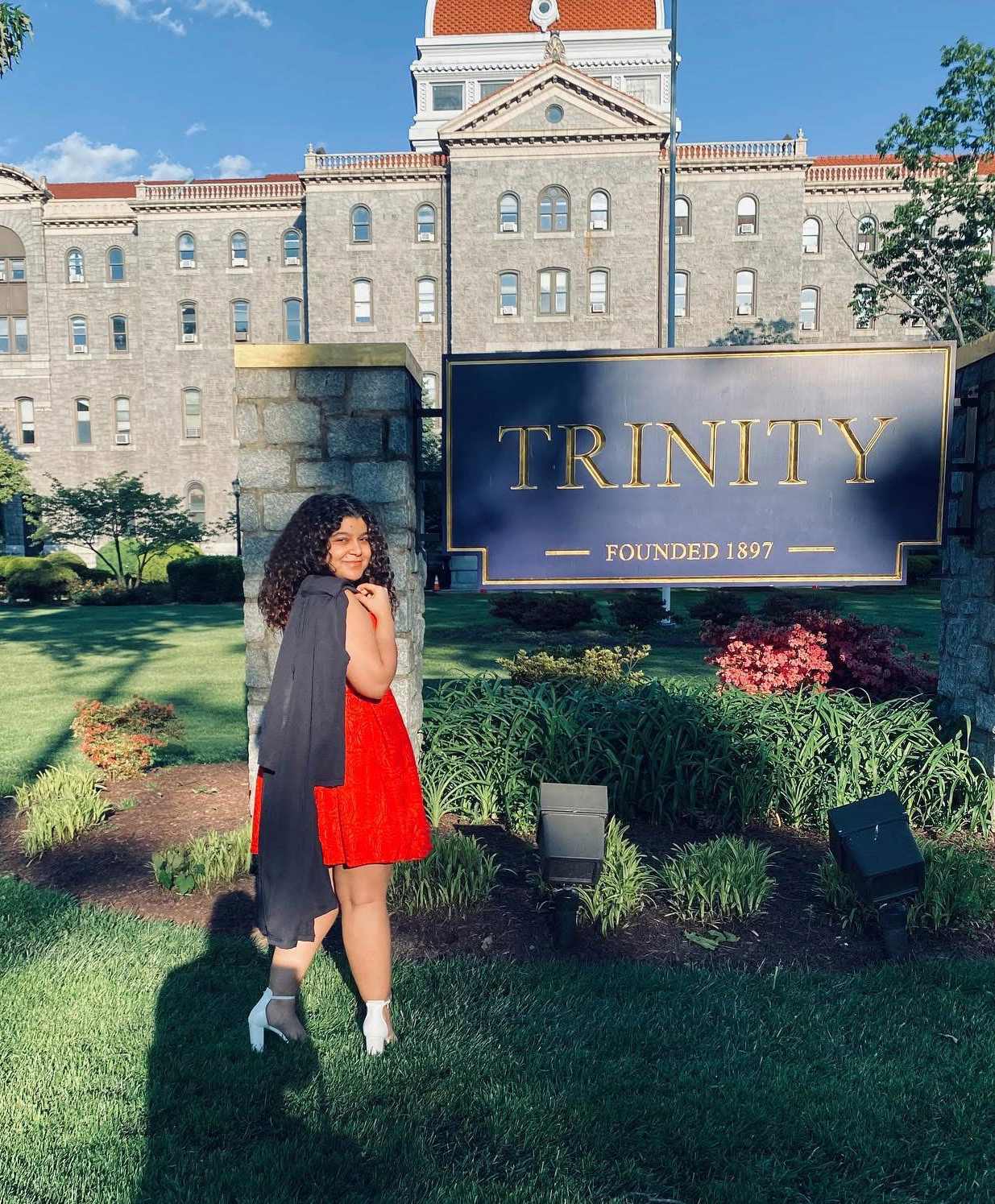
My name is Evelyn Piantini Figuereo, and this is my story.
I was born in the Dominican Republic to hardworking parents, Ivelisse and Julio. In 2010, we left everything behind and moved to the U.S., guided by faith and hope for a better future. That first year was tough. I was a child trying to learn a new language and culture, often feeling out of place. But my parents showed me what resilience, integrity, and the value of education truly look like.
As I grew older, I came to understand the depth of their sacrifices. In 2015, I graduated from high school, determined to honor their efforts. I began college in Ohio, but Washington, D.C., always felt like home. At Trinity Washington University, I found belonging and earned my bachelor’s degree in Business Administration in 2020. In the following years, I began a career in Human Resources, started my own business, and returned to Trinity to pursue my MBA. At every step, the unwavering support of my family and friends has been key to reaching this milestone. Each chapter has been part of a legacy I’m building—for my family and for future generations.
Through it all, Philippians 4:13 has been my anchor: “I can do all things through Christ who strengthens me.” Today, I stand as a graduate, a daughter, a Dominican immigrant, and a woman of God. I am living proof that with God, all things are possible.
To Mami y Papi—Espero que estén orgullosos.
To my future generations—I hope I’ve paved a way.
Congratulations, Class of 2025. The best is yet to come.
Tracy Jackson, B.A. Human Relations (SPS)

As I near my graduation on May 16th, I am filled with immense joy and gratitude. I want to express my heartfelt thanks to God for the strength, wisdom, and resilience that have carried me through the past three years at Trinity Washington University. This milestone would not be possible without His guidance. Balancing a demanding full-time job, family responsibilities, and life’s challenges made this journey tough at times, but God was always by my side.
When I started my courses during the COVID-19 pandemic, most of my classes were held online. The intimacy of this format allowed me to concentrate on my studies. I faced significant obstacles, including the loss of many loved ones, such as my father, who became my guiding Angels. My Ancestors surrounded me, offering support and protection throughout this journey. Once again, God was my constant source of strength.
I am incredibly grateful to Trinity Washington University for the opportunities I have received. I cannot forget the exceptional professors who have positively influenced my education. They challenged me and helped me grow. I extend my deepest gratitude to Professors Daryl H. Thorne, Dr. Hans Momplaisir, Tresa Welch, Dr. James (Jay) Maiden, Wenisha Jones, Cheryl Smith, Dr. Brian Sutton, and Mahshid Khavari. Learning from you has restored my confidence in my abilities, and it has been a true honor to be your student. I also want to thank Ms. Lakisha Jackson, Ms. Timera Williams, and Briana Williams from enrollment services; your support has meant the world to me!
As graduation day draws near, I am overwhelmed with gratitude, especially as I prepare to graduate with a 3.6 GPA, earning my Bachelor of Arts in Human Relations at the age of 54. I feel incredibly blessed to have God by my side and my family cheering me on. My son, my mother, my 97-year-old grandmother, my family, my friends, and my GWUL work family have all been my biggest supporters. My appreciation for each of them runs deep. Their love, admiration, and genuine joy for my achievements mean everything to me. I believed I could, and I did it. Thank you, God! Heavenly Father, I ask for your divine protection over my Latina sisters in Christ who are enduring racism and injustice. Amen.
Chantese Jones Ziegler, B.A. Early Childhood Education (EDU)

My name is Chantese Zeigler, and I was born and raised in Washington, D.C., which proudly makes me a true Washingtonian. I am one of four siblings, and I was raised by a strong, single Black woman who has done remarkably well for herself and her children. I embody the idea of the “rose that grew from concrete.”
I have spent most of my life living in Ward 8, and I aspire to continue my journey as an educator here. People often ask me why I don’t pursue teaching in other areas where I might be treated differently. I choose to stay because my family is in Ward 8, and they, too, deserve access to a quality education. If every dedicated educator like me leaves, what will be left for the children in my community?
One of my favorite quotes comes from the theorist Abraham Maslow: “A child should be Maslowed before he blooms.” This idea stems from his Basic Needs theory, which emphasizes that if a child’s basic needs, such as proper housing, food, love, and social and emotional support, are not met, it becomes exceedingly challenging for them to learn and retain information.
This belief is why I feel called to this work. I am committed to being part of the village that nurtures our children. I understand that they will make mistakes, just as we all do, and I will approach these moments with patience. My goal is to create a peaceful environment where they can grow and be their authentic selves. The years from birth to five are the most critical in a child’s life, and I promise to support any child I have the privilege of encountering.
Malika Walters, B.A. Early Childhood Education (EDU)
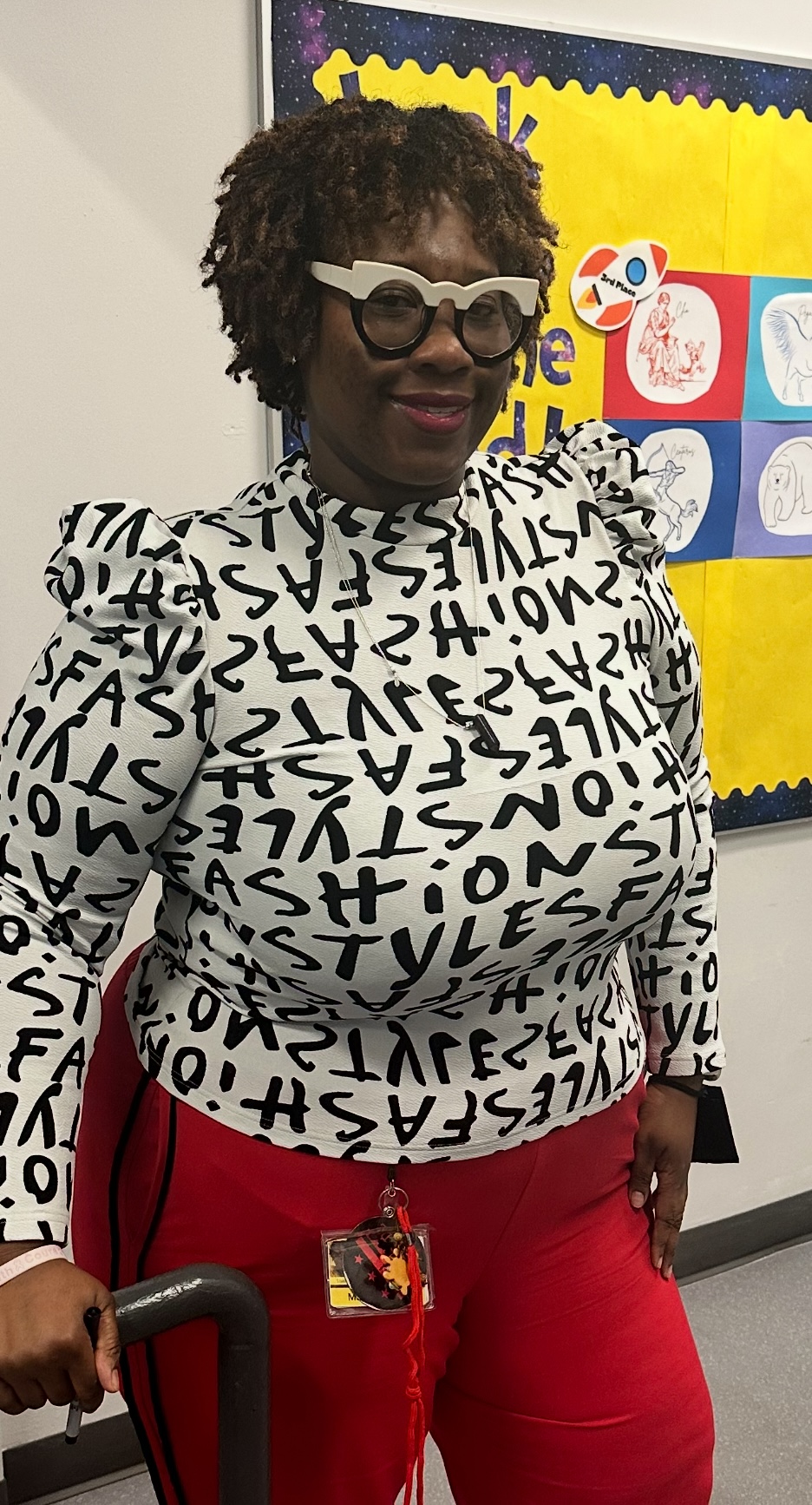
Screenshot
My name is Malika Walters and I am a Washingtonian! I am a product of the District of Columbia Public School system, where I graduated from Paul Laurence Dunbar Pre-Engineering High School. As a child, I always knew I wanted to work with children. I dreamed of following in my aunt’s footsteps to become a pediatric nurse. I accepted a seat at Morgan State University as a biology major. During my first year, I discovered I was pregnant and had to pause my studies. After giving birth, I remained eager to work with children but needed time before returning to my collegiate journey.
As a young mother, I was determined to overcome the challenges we often face. I continued my studies as a biology major at the University of the District of Columbia while balancing life as a single mother but something was still missing in my journey. After gaining years of experience in the workforce, I realized I wanted to help children in a different way. This shift led me to register at Trinity Washington University @ THEARC.
Despite these challenges, I balanced raising my son, managing his sports and activities, attending multi-night weekly classes, caring for an ailing grandmother and working. While my main role was as an Executive Assistant at my church, I also worked part-time at my son’s school as a tutor and Family Engagement Assistant. These roles allowed me to connect with children from various angles, through youth and community ministry, tutoring and family support. Each experience taught me valuable lessons in grace, patience and trust. I was later fired from my Executive Assistant position and this brought additional issues to navigate. This didn’t wear me down because in August 2012, I was hired at my son’s middle school. Immediately after, I began my course of study at Trinity Washington University @ THEARC. Throughout my time there, I met many like minded, career focused adults who were all balancing life, children, work and school. I faced numerous personal, professional and academic obstacles.
In the spring of 2016, I graduated with my associate’s degree, fulfilling a promise I made to myself and proving that hard work and determination could break through the toughest barriers. The pressure around encouraged me to continue my journey. I tried that fall but unbeknownst to me I wasn’t ready. I assumed I would provide more opportunities with my associates but soon realized it wasn’t enough.
Throughout my journey, I have been committed to creating environments where children feel safe, valued and empowered. My work in diverse educational and community settings has exposed me to the inequities many students face with many barriers rooted in socioeconomic status, race, language and place of origin. As a Black woman, a mother and a professional, I’ve experienced firsthand how difficult it can be to navigate systems that often overlook the unique needs of marginalized communities.
These experiences motivated me to return in the Fall 2022, once more to complete my Bachelor of Arts in Early Childhood – Community Education, which I will complete in Spring 2025. This second wind has brought knowledge, growth and deeper connections with people and ideas that align with my passion for justice in education. It has not been easy. Life has brought its own “ebbs and flows” from a global pandemic, to my son navigating his college journey at Morehouse, to housing changes and professional stress. Many nights I cried, stayed up late, questioned whether I should continue working or pursuing my degree and wrestled with the challenges of raising a young adult. But each roadblock built a stronger foundation. Every step I’ve taken, I’ve taken for myself first.
This journey has ultimately led me to pursue a Master of Education in Curriculum and Instruction with a concentration in Social Justice in Fall 2025. I believe that every child, regardless of background deserves access to high-quality education that is both academically rigorous and socially empowering.
My goal is to create safe, inclusive and enriching learning environments where every student and family feels seen, heard and supported. I want to focus this work in the very communities I have served, communities where students and families look like me and share similar lived experiences. Ultimately, I hope to expand this work globally, bringing educational equity to children and families around the world.
I look forward to equipping myself with the tools to advocate for systemic change and to empower students not only as learners but as engaged citizens capable of shaping a more just and equitable society. Thank you to a few of my professors who have left an immeasurable stamp in my journey, Michelle Brown, Chelsia Latney and Michael Rowe. The work doesn’t stop, degree #3 loading.
Lakeisha Gregory, B.A. Early Childhood Education (EDU)
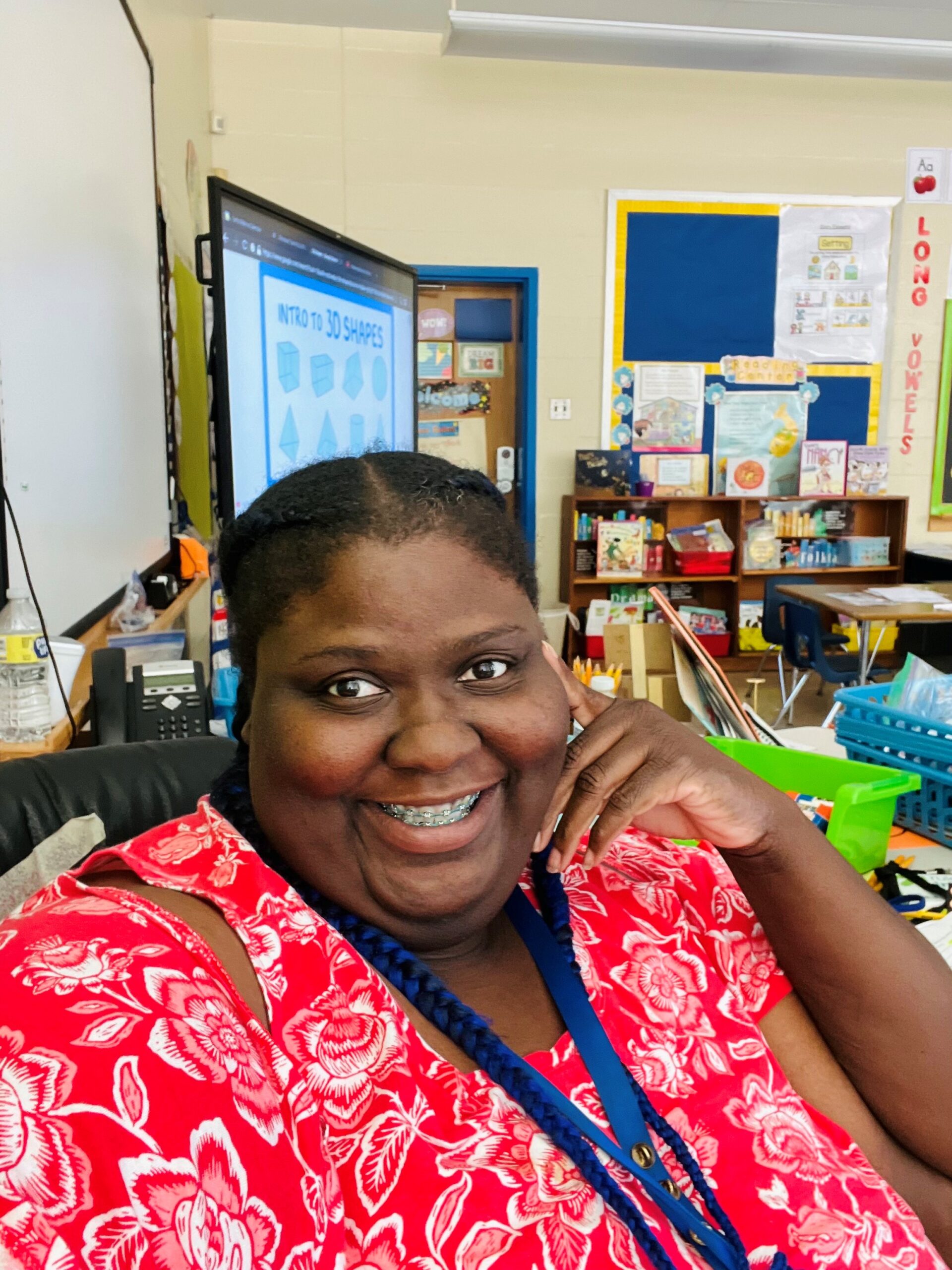
My name is Keisha Gregory, and I am excited to continue my career in education after graduation as a lead teacher. I will be working in an elementary school in Maryland, where I plan to bring energy, patience, and creativity to my classroom each day. Teaching has always been my passion, and I’m especially eager to connect with my students, create a supportive learning environment, and build strong relationships with families and colleagues.
My goal is to help students learn to enjoy math, which has always been my favorite subject to teach. I believe that with the right approach, all students can develop confidence and enthusiasm for solving problems and thinking critically. I plan to use hands-on activities, real-world connections, and positive reinforcement to make math fun and accessible. I look forward to inspiring young learners and helping them recognize their potential to achieve great things.
 Krystal Johnson, M.Ed, Educational Policy and Leadership (EDU)
Krystal Johnson, M.Ed, Educational Policy and Leadership (EDU)
My path at Trinity Washington University began in 2017, with a dream of making a difference in the lives of young children. After earning credits toward my associate degree, I continued on to the bachelor’s program and graduated in December 2022 with my degree in Early Childhood Education.
My passion for nurturing and teaching young children led me to continue my education. In May 2023, I took the next step and enrolled in graduate school to pursue a master’s degree in Curriculum and Instruction, with a focus on Education Policy and Leadership. I am proud to now be graduating with this degree, a symbol not just of academic success, but of perseverance, growth and purpose.
As a single mother to a beautiful fourteen year old daughter, my biggest motivation has always been to keep going, no matter what. There were times the journey was hard and filled with challenges, but I never lost sight of my goals. I am deeply grateful for the professors at Trinity who believed in me and reminded me of my strength when I needed it most.
My career in early childhood education has grown alongside my academic journey. I began as an infant teacher, moved into a coordinator role, and now serve as a center director.
As I look ahead, I am excited for the positive impact I can continue to make in the lives of young children, particularly infants and toddlers.
Thank you, to the entire Trinity community for being a part of this journey and for empowering me to rise.
Continue reading →Read comments (0) Add CommentPope Leo XIV: The Right Leader for Our Global Church
May 8, 2025
Today, the College of Cardinals elected Cardinal Robert Francis Prevost to be the new Pope — he chose the name Pope Leo XIV. Congratulations to our new Pope!
I hope you had (or will have on video) an opportunity to watch him come out on the balcony to address the thousands gathered in St. Peter’s Square for his first papal address. “Peace be with you,” were his opening words. He spoke in Italian and Spanish, invoking Pope Francis as he extended a blessing to the large crowd and indicating that he would be continuing largely in the Francis mode.
Commentators are making much of the fact that Pope Leo is an American — we can celebrate this native of Chicago, but we also must understand that he is a truly international pastor, having spent most of his ministry in Peru and the global South. His broad international experience makes him a truly fitting leader for the Catholic Church in these challenging times.
For the last two years, he has also been Prefect for the Dicastery of Bishops, a position that evaluates candidates for elevation to the episcopate all over the world, and through that work he has much insight into what kinds of bishops work — or don’t work — for the diverse populations of Catholics around the globe. Earlier, he also served for six years as the Prior General of his religious order, the Augustinians.
While noting his international experience, and commitment to his flock in Peru and throughout South America in particular, we can also note one distinctively American identity — he earned his undergraduate degree at Villanova University! So we can speculate on whether March Madness will become a topic of interest at the Vatican…
One other note: the name Pope Leo has special meaning for Trinity!! The last Pope Leo — Leo XIII — drove the social justice revolution in the Catholic Church, particularly with his encyclical Rerum Novarum. But also, because of his progressive vision in 1897, he approved the founding of Trinity after some conservatives tried to prevent the Sisters of Notre Dame from establishing the nation’s first Catholic college for women. From the little bit I’ve learned about the 14th Pope Leo in the last hour, it seems he will continue the progressive momentum of the Church.
I’ll have more on Pope Leo XIV and this new moment for the Church in the days ahead. I urge you to read about him and join me in extending Trinity’s congratulations.
Share your thoughts on Pope Leo XIV in the comment box below.
Continue reading →Read comments (0) Add CommentPope Francis: Trinity Community Remembrances and Tributes
April 25, 2025
As the world prepares to say farewell to Pope Francis, I invite members of the Trinity family to share remembrances and tributes for “The People’s Pope” — below are some that have already come in, feel free to share yours by clicking on the “comment” link below or email me at president@trinitydc.edu
Dr. Carrie O’Reilly, Associate Dean for NHP and Director of the Nursing Program:
My immediate thought about Pope Francis is humilitas and modestia. It is my belief that this pope exemplified the very nature of what Christ told us were the blessings or beatitudes related to desired faith and human behavior—pureness of heart, meekness, thirst for righteousness, mercy, peacemaking. Pope Frances demonstrated all of these. John Welsey wrote that the “pure in heart … are, through the power of grace, purified from pride, by the deepest poverty of spirit; from anger, from every unkind or turbulent passion, by meekness and gentleness; from every desire but to please and enjoy God, to know and love him more and more, by that hunger and thirst after righteousness which now engrosses their whole soul: So that now they love the Lord their God with all their heart, and with all their soul, and mind, and strength.” (Upon Our Lord’s Sermon On The Mount: Discourse Three, Sermon 23, 1739). I have seen all of this in Pope Francis’ example to the Christian walk of faith. When we witness such a life, we are called to be a witness also. Proverbs 14:25 tells us “a truthful witness saves lives….” I believe the Pope Francis has been a truthful witness, and his legacy will be the myriad saved lives globally as a result of that witness.
Sr. Ann Howard, SNDdeN, Director of Campus Ministry:
May he rest in peace. And may the Cardinals, as they gather to elect a new Pope, vote for the continuance of the synodal church we are becoming accustomed to. That Francis held an audience on his last day, Easter Sunday, before thousands gathered in St. Peter’s Square shows that he completed his mission and did ‘conduct his farewell’ beautifully and now we can offer him our blessing with prayer and acts of kindness.
Martha Molina, Director of Financial Aid:
My husband and I, who are not Catholic, were deeply sorry to hear about his passing because of the characteristics that you mentioned below. I will pray as well for the Cardinals to select someone worthy, as Pope Francis was, to guide the church and all of us. People from my faith, always spoke very highly of Pope Francis because his love for the people transcended religions, he loved everyone and didn’t judge people. His guidance to the world will be sorely missed.
Eugene Pinkard, Trustee:
In my life, I have seen few leaders–let alone any at the pinnacle of global influence–to adopt a more Christlike posture. Not only did Pope Francis exhibit a commitment to love, justice, and humility, he did it in a way that challenged institutions and individuals to reflect on what it truly means to live in accordance with our values. He will be missed, but his message and example will endure.
Michele Thompson, HR Talent Recruitment:
Pope Francis will be greatly missed! During his visit in 2015, I was among the many that stood on the side walk just to get a glimpse of the Pope who stood for peace, hope and the people. I pray that the next Pope will have those same characteristics that we all loved!
Continue reading →Read comments (3) Add Comment




